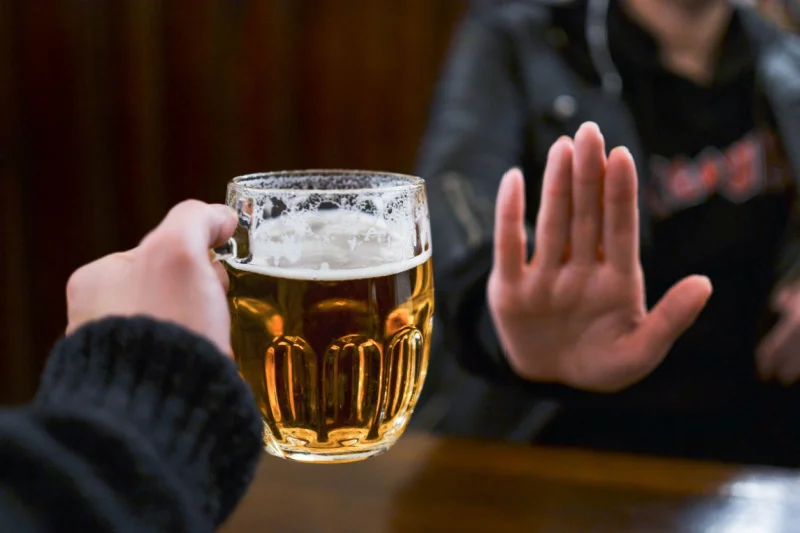Antabuse: What You Need to Know
Alcohol addiction, better known as alcoholism, is one of the most common and serious substance use disorders in the world. Every year, millions of people die because of alcoholism, and millions more have their lives irrevocably changed.
Luckily, there are a wide variety of treatments for alcoholism that can help you or your loved one regain and maintain sobriety. One of the most commonly prescribed treatments is Antabuse, also known as disulfiram.
What Is Antabuse?
Antabuse is a common brand name for the drug disulfiram.
Disulfiram originally gained widespread use in the 1930s, when it was used in the rubber production process. It was discovered that workers who ingested disulfiram became violently ill when they consumed alcohol. About a decade later, disulfiram was studied for its clinical use in treating alcohol use disorders.
“Unlike other medication used to treat alcoholism, such as naltrexone and acamprosate, Antabuse works by altering how your body breaks down and eliminates alcohol instead of affecting the brain’s receptors,” says psychiatric mental health nurse practitioner (PMHNP) Valerie Puffenberger.
Treatment professionals quickly realized disulfiram’s incredible deterrent potential and began to sell the drug under the name Antabuse.
Antabuse is currently one of only three drugs approved by the Food and Drug Administration (FDA) specifically for the treatment of alcohol addiction. Currently, it is only available in tablet form, although these tablets may be crushed and mixed with liquids.
Disulfiram should only be taken once a day, and only after the patient has been sober from alcohol for at least 12 hours (otherwise, the patient will become violently ill).
How Antabuse Helps with Alcohol Addiction

Antabuse helps treat alcohol addiction by acting as a deterrent to use. If you are taking Antabuse, your body will have a violently negative reaction to alcohol, which starts within moments. Thus, patients refrain from consuming alcohol to avoid the negative reaction.
Antabuse reacts with alcohol in the body, causing a number of unpleasant effects, including:
- Nausea
- Sweating
- Facial flushing
- Vomiting
- Diarrhea
These extremely negative and unpleasant effects create the deterrent value of Antabuse. Even worse, the greater the amount of Antabuse and/or the amount of alcohol that is in the system, the more severe these effects will be.
While Antabuse is highly effective and has been used in alcoholism treatment for many decades, it does not reduce cravings or urges to drink. Nor does it combat any of the underlying causes of addiction or help patients properly manage triggers.
“Antabuse should be considered when someone is motivated to stay abstinent from alcohol and is aware of the risks and routines that are necessary of use,” says Puffenberger.
For these reasons, Antabuse should never be used alone. Rather, Antabuse is only effective when used in combination with therapy and support, and sometimes other medications.
Common Side Effects of Antabuse
Antabuse is a unique drug, because most of the drug’s desired effects would be considered severe side effects of any other drug. The facial flushing, sweating, severe nausea, and violent vomiting and diarrhea that accompany the drug are desired effects and help deter alcohol use.
However, there are some common side effects of Antabuse that are not intended. These include:
- Acne
- Drowsiness and tiredness
- Headache
- Metallic or garlic-like taste in the mouth
There are also some very severe side effects of Antabuse. While rarer, these Antabuse side effects can be quite serious and sometimes fatal. If you are experiencing any of these side effects after using Antabuse, you should contact your doctor immediately:
- Dark urine
- Difficulty breathing
- Dizziness
- Itching or swelling of the face, throat, or tongue
- Liver disease
- Muscle weakness
- Mood changes
- Numbness or tingling of the limbs
- Rash
- Severe abdominal pain
- Severe allergic reaction
- Sexual dysfunction
- Unstoppable, continual vomiting and diarrhea
- Vision changes
- Yellow eyes or skin
Antabuse and Its Longevity in the System
Antabuse is absorbed much more slowly by the body than many other substances, and therefore has more longevity in the system than most drugs. Several factors determine how quickly the body eliminates Antabuse from the system, including medical, biological, situational, and environmental factors.
Approximately 80 to 90% of the Antabuse that is consumed enters the bloodstream, and its half-life is 60 to 120 hours. That means the amount of Antabuse in your system will be cut in half every 60 to 120 hours. In some cases, 20% of a single dose of Antabuse may remain in the system for a week or more, and some may be present for up to two weeks.
Antabuse is a legal substance, and so it is generally not tested for on drug tests. However, if Antabuse is in your system, it may cause a false positive on drug tests.
Antabuse Cost and Availability

Antabuse is a commonly prescribed medication in the United States, and in much of the world. It’s available in most pharmacies and other prescription drug sellers. However, in the United States, Antabuse is only available with a prescription; you cannot buy it over the counter.
Typically, Antabuse costs patients between $0.40 and $2 per pill, but the price can vary.
Antabuse is priced so that if customers purchase pills in greater quantities, they will pay less per pill. However, the biggest factor that determines the prices of Antabuse for most people is their insurance. Although Antabuse is covered under most insurance plans, different plans will cover drastically different amounts for the drug.
Stopping Antabuse Safely and Effectively
Antabuse is not considered an addictive substance and does not pose a withdrawal risk. Stopping Antabuse can be done safely and effectively without medically supervised detox. However, a taper-down method (where the dose is gradually reduced over time until it reaches zero) is often advisable.
You should only stop taking Antabuse under the guidance of a physician or addiction treatment professional. This is because there is a risk of alcohol relapse when Antabuse use is ceased. Although Antabuse alone is not enough to totally prevent relapse, it is a critical piece of the puzzle for many alcohol use disorder sufferers.
If you intend to stop taking Antabuse, it is important that you consult with the physician who prescribed the drug, along with any other mental health and addiction care professionals you are working with. It is also important that you have worked on improving any underlying causes of alcohol addiction and can handle your triggers appropriately.
Get Help for Alcohol Addiction
If you or someone you love are struggling with alcohol addiction, help is out there. Treatment programs like those provided at Legacy Healing Center are dedicated to making sure that you regain your sobriety and maintain it for the long term.
We believe the only way to fully heal patients is with a holistic approach that treats the mind, body, and spirit. Through clinical therapy, medication-assisted treatment, and aftercare, we help patients overcome their disease and get their lives back on track.
Call 888-534-2295 today to speak with a treatment staff member today.
Antabuse FAQs
How long does Antabuse stay in the system?
How long Antabuse stays in the system depends on many personal and environmental factors. However, in general, half the Antabuse that is in your system will be eliminated by the body every 60 to 120 hours. This means that approximately 20% of a single Antabuse pill will remain in the system after seven days and that some will remain for at least 14 days.
Is there a generic version of Antabuse available?
Yes, there is a generic version of Antabuse available. Antabuse is the most common and well-known brand name for the compound disulfiram. Generic versions of Antabuse are widely available in many countries. Generally, generic versions of Antabuse are less expensive.
How do I safely stop taking Antabuse?
The only way to safely stop taking Antabuse is to first consult with your prescribing physician and any addiction treatment professionals you are seeing. While Antabuse is not considered addictive, stopping the drug can have other consequences.
Antabuse is usually only prescribed for individuals who have significant difficulties stopping drinking. Although Antabuse alone will not make or keep someone sober, stopping the drug will often make relapse more likely. Antabuse should never be stopped unless under medical direction and if the person is very secure in their ability to prevent relapse.
Sources
- National Library of Medicine. (2022). Disulfiram.
- National Alliance on Mental Illness. (2023). Disulfiram.
- Mayo Clinic. (2023). Disulfiram (Oral Route).
- National Library of Medicine. (2023). Disulfiram: Mechanisms, Applications, and Challenges.



